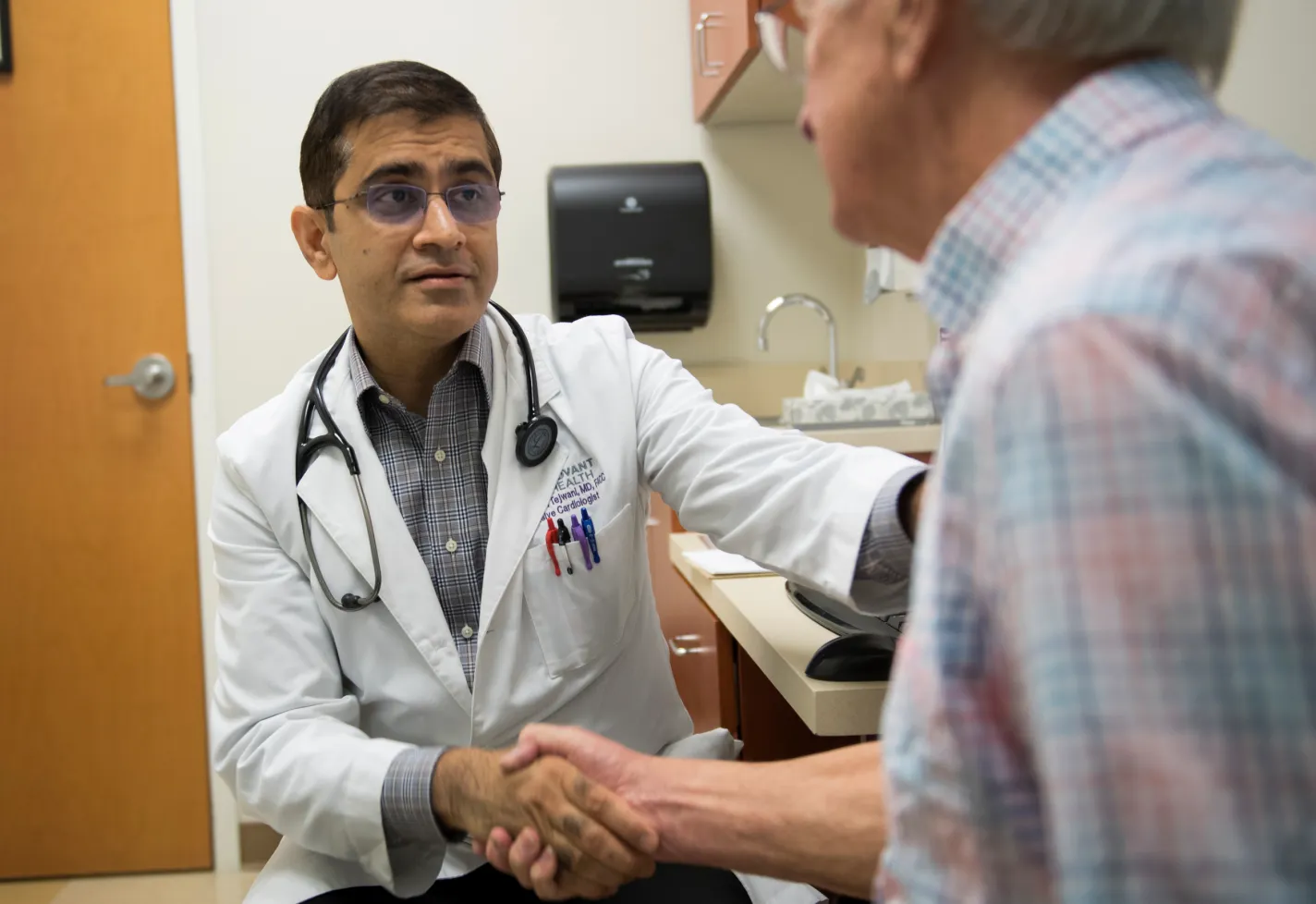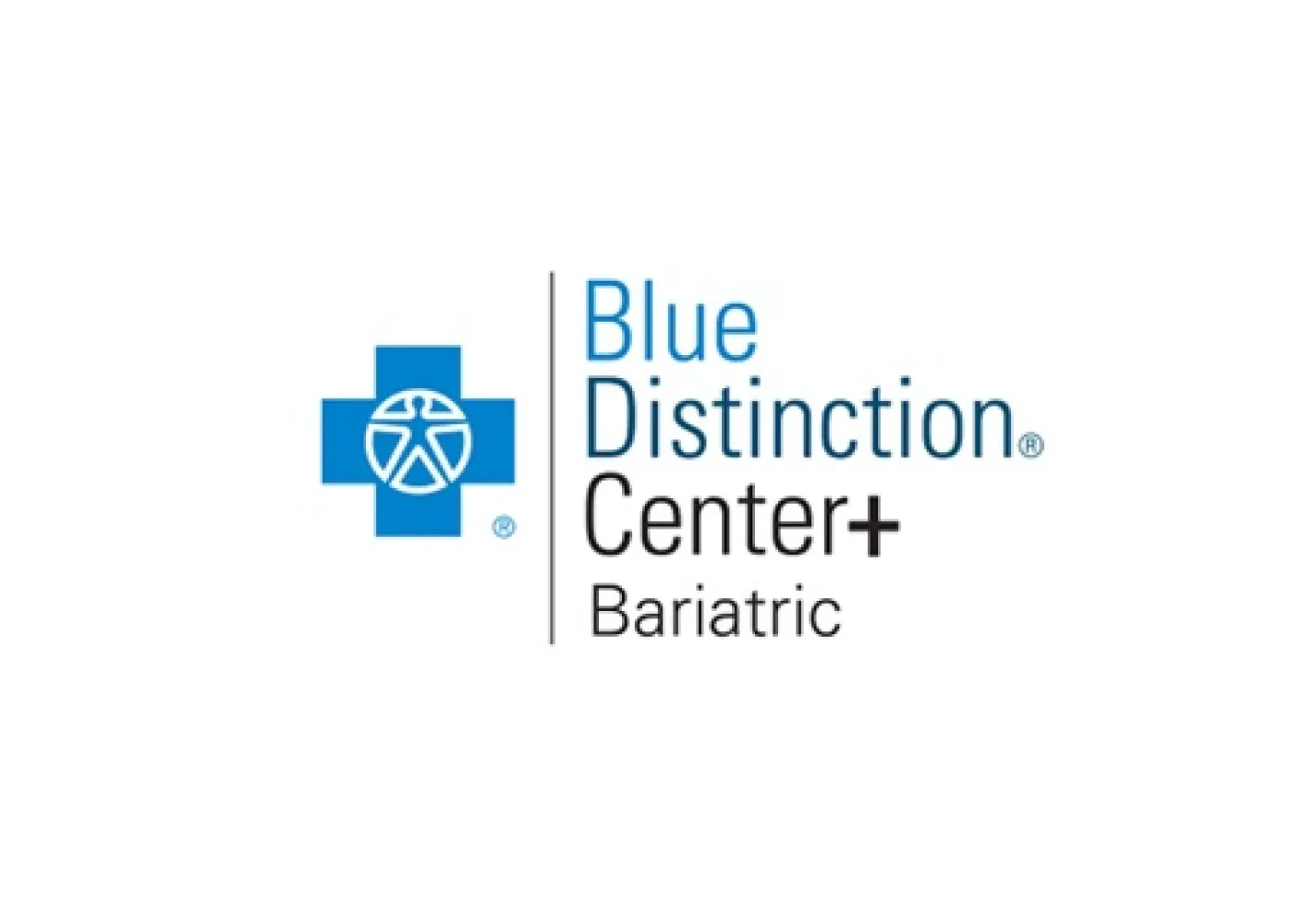Bariatric Surgery
Live the life you really want.
Maintaining a healthy weight is a real struggle for many people. We care deeply about helping you overcome the physical and emotional barriers to improving your health. We provide several types of bariatric surgery using the latest medical technology. Our highly trained and compassionate caregivers will support you before, during and after surgery to ensure you successfully reach your weight loss goals.

What is bariatric surgery?
Bariatric surgery describes several surgical procedures performed for significant weight loss. The process may involve surgically restricting the amount of food your stomach can hold or reducing the number of calories your body absorbs. Some minimally invasive surgeries are performed laparoscopically by inserting a small instrument with a camera into the abdomen or through robotic surgery, allowing your surgeon to perform complex procedures through tiny incisions using the robotic surgical system. Other bariatric surgery procedures may involve open surgery.
Bariatric surgery benefits
A study by the National Institutes of Health found that those who undergo bariatric surgery have a better quality of life and live longer. Since the average weight loss is 90-100 pounds, the benefits of bariatric surgery are significant. These include:
- Increased energy
- Less joint pain
- More restful sleep and improved mood
- Potential reversal or decrease of the symptoms of serious medical conditions, such as type 2 diabetes, heart disease, cancer, high blood pressure and sleep apnea.
Beginning your weight loss journey
If you're considering bariatric surgery, the weight loss experts at Novant Health will conduct a comprehensive evaluation to determine if you're a good candidate for the procedure. Speak with your primary care physician to see if bariatric surgery is right for you. It's essential to mentally prepare yourself for the lifestyle changes you'll need to follow before and after weight loss surgery.
Our bariatric services go beyond surgery. You'll have the full support of a compassionate, dedicated team. These specialists will help you navigate the physical and emotional challenges typically associated with bariatric surgery.
Qualifying for a bariatric procedure
Your physician will perform an extensive evaluation of your condition. That may include an upper endoscopy, blood tests, imaging studies and a thorough medical history review.
Candidates for bariatric surgery typically have a body mass index (BMI) above 40 or a BMI of 35-40 combined with medical conditions like heart disease, diabetes, high blood pressure or sleep apnea.
You must also be willing to make lifestyle changes by following a healthy diet, regularly exercising and quitting smoking before bariatric surgery.

Bariatric surgery risks
Like any major surgery, we’ll talk you though the risks during surgery, recovery and over the long term. Possible complications during surgery may include infections, blood clots and blood loss, gastrointestinal issues and, in rare cases, death.
Longer-term risks may include:
- Malnutrition
- Acid reflux
- Bowel obstruction
- Hernia
- Low blood sugar
- Ulcers
Revisional bariatric procedures may be necessary if you experience complications or the initial surgery wasn't effective.
Life after bariatric surgery
On average, those who have bariatric surgery lose 65% of their excess body weight and sustain their weight loss for ten years by eating healthy foods, exercising and maintaining a healthy lifestyle. Our support services will help you navigate these changes and connect you with support groups so you can meet and maintain your goals.
Types of Bariatric Surgery Procedures
Restrictive and malabsorptive bariatric procedures
Restrictive bariatric procedures reduce the size of your stomach. With a smaller stomach, the amount of food you can eat decreases, and it takes less to feel full.
Malabsorptive procedures reduce the calories your body absorbs from the foods you eat. Your surgeon will create a bypass around part of your small intestine.
Procedures include:
- Vertical sleeve gastrectomy: This method involves surgically removing a large portion of the stomach to create a long, thin stomach that resembles a sleeve.
- Roux-En-Y gastric bypass procedure (RNYGB): RNYGB is another minimally invasive procedure that reduces the size of the stomach and bypasses parts of the small intestine.
- Gastric bypass sleeve: This minimally invasive procedure divides the stomach into two sections. The smaller section gets sealed, while the longer, narrow section that resembles a sleeve is attached to a lower part of the small intestine.
Revisional procedures
Revisional procedures are performed when initial bariatric surgery procedures aren't effective, or weight loss isn't sustainable. Procedures include gastric band removal, where a surgeon removes a previously inserted gastric band and often converts it to another bariatric procedure.
Is Bariatric Surgery Right for You?
Candidates for bariatric surgery usually have a body mass index (BMI) greater than 40 or a BMI of 35-40 with other obesity-related medical conditions. Find out if you qualify for bariatric surgery.

Why Choose Novant Health
Accredited by top national bariatric surgical organizations, you can feel confident that you will be supported throughout your weight loss journey by a specialized team of experts focused on your individual needs. You’ll find experienced board-certified bariatric surgeons at convenient Novant Health locations throughout North Carolina.

Your weight loss journey is unique. That’s why our nationally recognized bariatric surgeons work with you to develop a personalized weight loss plan. At Novant Health, you’ll have access to the latest bariatric surgery treatments at locations across much of North Carolina. Your support goes beyond surgery. Count on our teams to be there before, during, and after treatment, to help you meet your weight loss goals

Your specialist may want you to lose weight to prepare for knee, hip, spine, or another surgery. Our bariatric weight loss teams will work closely with them to support your weight loss needs and prepare you for upcoming surgery. At Novant Health, we make it easy to access certified weight loss facilities near you. Whether you need support through medications, nutrition and exercise counseling, or bariatric surgery, we have programs and professionals to help you throughout your journey.

We know maintaining a healthy weight can be a real struggle. Before and after your surgery, you’ll have access to dietitians, behavioral health professionals, exercise coaches, and more. Following surgery, our support groups can help you stay on track with your new lifestyle. The professionals and programs available at Novant Health bariatric clinics and CoreLife Novant Health locations bring the long-term emotional and physical support you need to live a healthier lifestyle.


Bariatric Surgery Accreditations and Recognition
Our board-certified bariatric surgeons and bariatric surgery centers are nationally recognized for excellence in weight loss surgery.
Novant Health facilities have earned accreditation from the Metabolic and Bariatric Surgery Accreditation and Quality Improvement Program (MBSAQIP) by the American College of Surgeons and the American Society of Metabolic and Bariatric Surgery as well as the Blue Distinction Center for Bariatric Surgery by Blue Cross Blue Shield Association.
